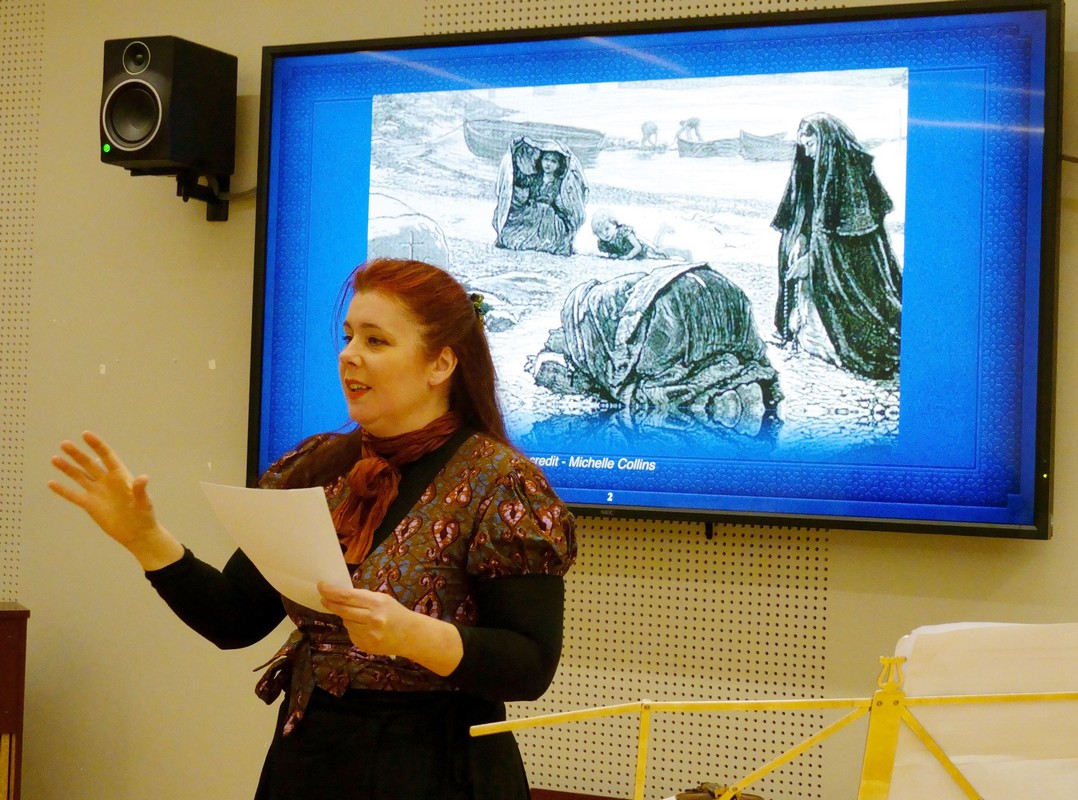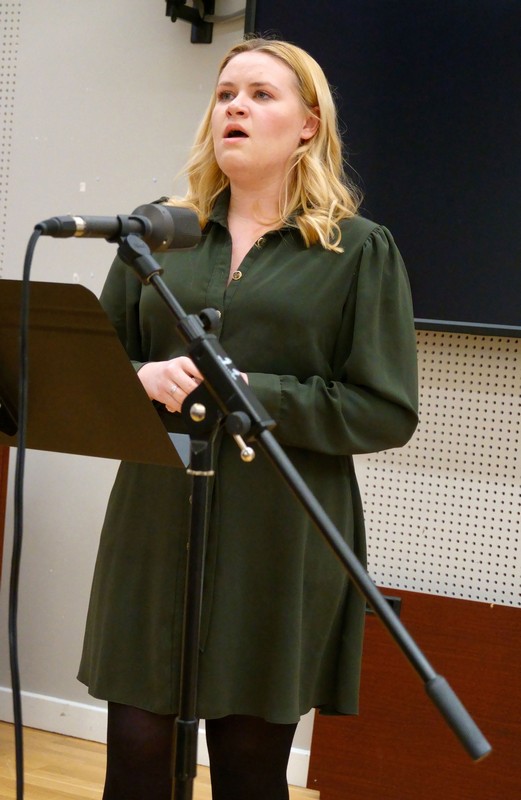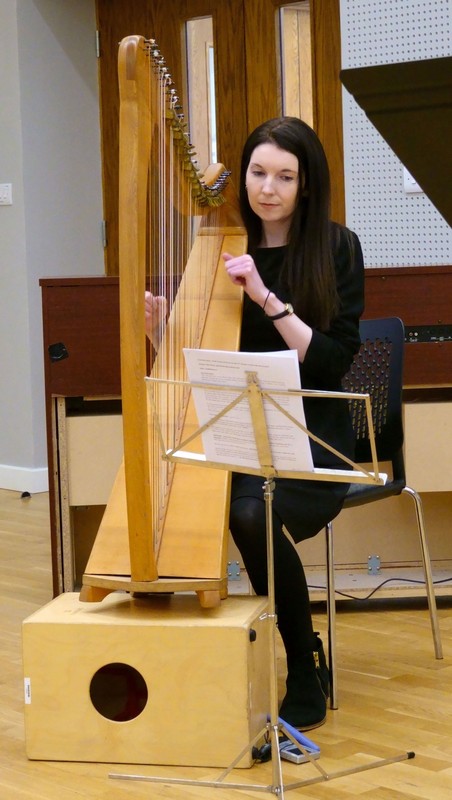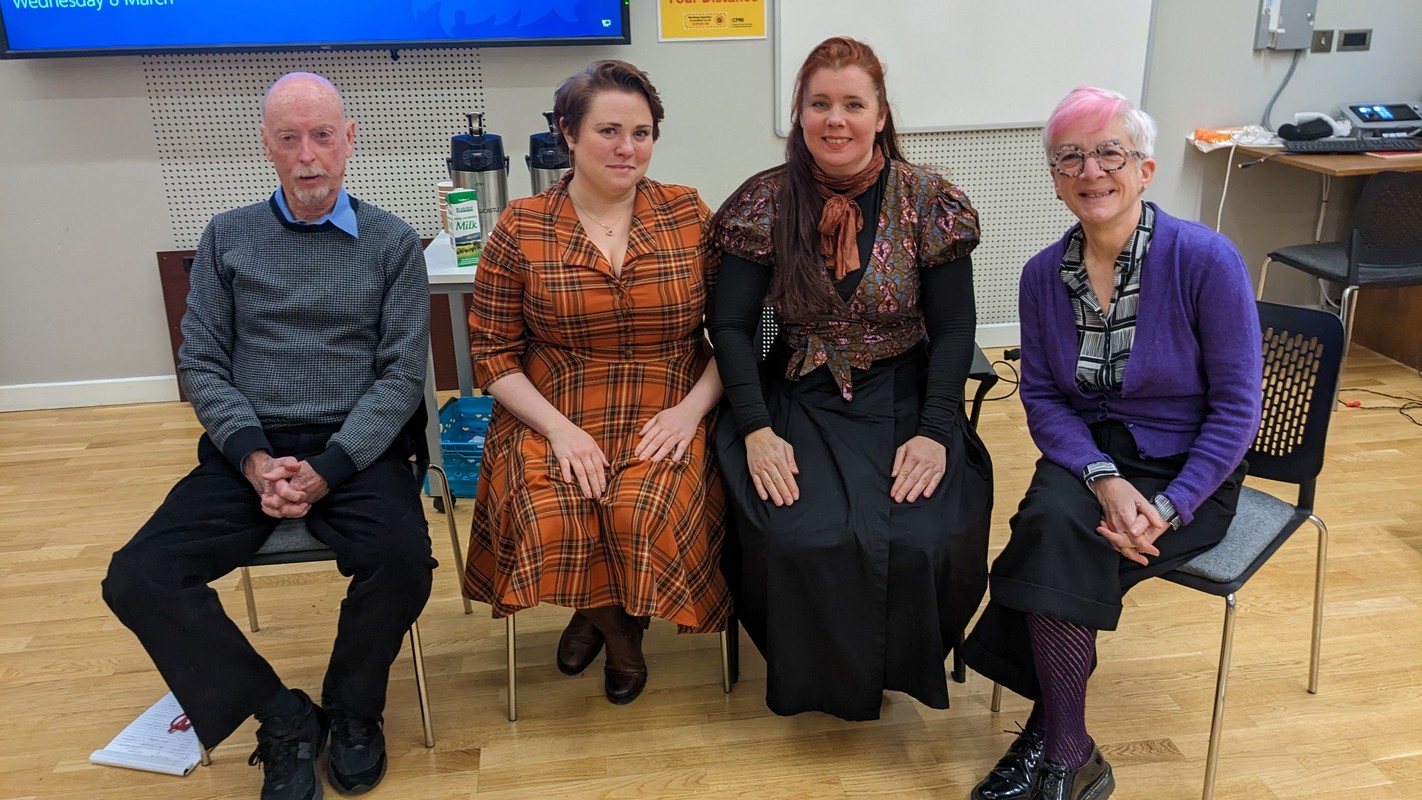Performing Women’s Voices
Performing Women’s Voices - International Women’s Day research event, March 8th 2023
The three presenters – Kate Chedgzoy (SELLL), Imogen Gunner (ICMuS) and Laura Wright (SELLL) all shared work in progress that explores questions about how women vocalise, with what intentions and effects, using what forms and media, and in what circumstances. We considered, too, how women’s voices are listened to, heard and received, and what factors support or complicate that reception. We were greatly assisted in reflecting on our own research practice, identifying challenges and future questions/directions for our investigations, and in surfacing bigger issues of method and approach by the involvement of Leverhulme Visiting Professor Bruce Smith as respondent and discussion facilitator. Professor Smith’s deep expertise in historical phenomenology and gender studies were extremely helpful in focusing the discussion, and his grace and generosity as an interlocutor were so enabling.
Over the course of the afternoon, a total of around 40 people attended, including staff and students primarily from SELLL, ICMuS and MCH as well as other HaSS Schools, and also members of the public. It enabled the three presenters to share our research, to explore points of connection across our work (of which there are many) and to open up a space for exploring methodologies and practices in performance as research in ways of interest to a range of colleagues and students.
Imogen and Laura used a portion of the Performance Research Network and MEMS funding to deepen and extend their research practice in ways that went beyond the International Women’s Day event:






Imogen Gunner - Performing Women's Voices Reflections
From a personal perspective, the funding we received enabled me to pay for time and input from a select team of artists, who helped me to bring my creative ideas to fruition. In doing so, I was able to create an eleven-minute performance, which combined a backing track of layered voices, sound effects, piano, archival sounds and narration, with live performance on harp, voice and fiddle, on the day itself. With the funding, I was able to book a research and development day with the two musicians that I invited to collaborate in the live performance with me, Rachel Duffy, a harpist from Bray, County Wicklow, Ireland, and singer Marrianne Hume, a PhD composer and researcher from Sunderland, also based in ICMuS. The pre-recorded section of my work featured narration from Irish actor Amy O’Dwyer, and included some sound effects, recorded in Northumberland parks and waterways, and a basic audio mix for the performance, from Durham-based, fellow ICMuS PhD composer and sound artist, David De La Haye. All of this was made possible with the funding kindly made available for the event.
Preparing for the event helped me to focus on developing my creative ideas, both in terms of presenting a short talk about my research, and then performing my new composition, which was created especially in time for the event. The piece was a short version of a project that I aim to develop into a longer performance piece, a standalone work that will include theatre, dance, music, spoken word, archival audio and film. The wider research project forms part of my current, ILand-funded doctoral studies at ICMuS. The recorded audio, photographic and filmed footage of my talk and performance at the event, will enable me to share my work further, and will also enable me to reflect upon the process and outcome of the R&D activity, and develop the work.
Questions were put to me at the time, as part of the panel discussion with invited respondent Bruce Smith, which helped to think about areas of research to work on and clarify. Subsequent emails and in-person discussions with audience members, both colleagues and students have led to questions and suggestions from our wider community, about interesting ways to think about developing the piece. I have also shared my approach to composition, using the piece created for this event, with my current Stage 1 Creative Projects composition module. I am currently in discussion with Tyneside Irish Centre about staging a longer version of the piece, in the coming months. I presented my research, including footage of the piece that was formed especially for the International Woman’s Day event, at the International Conference of the Lament Tradition, in Helsinki, Finland, in May, at which I was an invited speaker. I am also proposing a development and performance, or performances of the piece, in response to the Great North Museum ‘Myths and Monsters MATCH Call’. I hope also to build on discussions and collaborations with both Kate and Laura, regarding future projects and the exciting, interdisciplinary resonances of our work.
Laura Wright, ‘A Record of Sorrows Past: Complaint and the Creative Archive’
This talk introduced a new project: a digital archive of recorded performances of female complaints. Complaint is the ideal subject for this creative and critical work, as it is predicated on the rhetorical device of prosopopoeia, or the performance of absent and dead voices. The event generated space for conversation and advice as I thought through the value and practicality of my digital archive.
The funding offered allowed me to rehearse with and to record two performers via Zoom as test cases for my archive, leading to a range of conclusions. One was that while useful for pandemic research, Zoom is not reliable enough to create archival recordings; either in person filming or non-live filming (the performers record themselves directly onto their own device) will be preferable. I also saw the clear value of offering the performer’s own backgrounds and thoughts on their readings; many people on the day of the event mentioned to me that this humanised the work and connected past and present in interesting ways.
As well as offering new ways to make valuable connections with other scholars interested in women’s voices, the event allowed me time to reflect upon my ambitions for my creative archive, which include generating blog-style entries for each writer, subtitles for clarity and accessibility, a forum/comments section, and a focus on a diverse range of voices. Much of this will be facilitated through support from Leverhulme, but it would be very useful to continue to collaborate within the university especially with those interested in performance, creative archives, and feminist studies.
